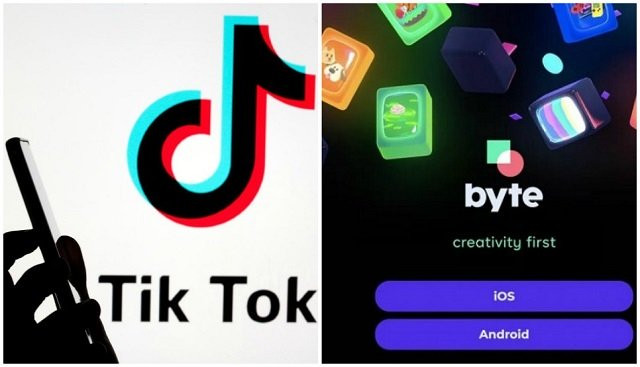TikTok’s new rival Byte wants to pay content creators
Byte aims to reward content creators based on viewer figures

PHOTO: REUTERS/BYTE
Vine co-founder Dom Hofmann, has announced a program that aims to reward content creators based on viewer figures.
During an unspecified pilot period, “100% of ad revenue will go to creators,” while the “long-term plan is to have a majority of the revenue going to creators,” it said in a statement on its website.
With this model, the new app aims to differentiate itself from TikTok, which has been downloaded more than 1.5 billion times, according to Sensor Tower, US-based research agency. It has huge followings in India, the US, Indonesia and elsewhere.
“After several years, [TikTok] still doesn’t offer any official way for its users to monetise their posted videos,” said Katie Williams, mobile insights strategist at analytics firm Sensor Tower.
“Creators can earn revenue by being on TikTok, but that comes from branded or sponsored content – deals that users must negotiate themselves without TikTok’s assistance – or, to a lesser extent, through ‘tipping’ on livestreams.”
“Receiving direct compensation based on viewing figures seems a lot more inviting and doable,” she said.
Hofmann has been working on Byte since he quit Vine; right after the app was acquired by Twitter.
After Snapchat, Instagram sets to copy TikTok as it unveils Reels
He had initially named the app V2 later officially revamping the project as Byte, but the name should not be confused with the popular Chinese company Bytedance, the makers of TikTok
According to Sensor Tower, the app has acquired more than 1.3 million downloads from both iOS and Google Play during its first week of release.
With 70% of new downloads from the US, followed by the UK and Canada, with 7% and 6%, respectively.
“Exploring multiple ways to help creators get paid” and the reward program is “only the first,” said Byte.
“Byte has had a running start due to its connection to Vine, but that is not the only trait the app will need to succeed in the already saturated market of short-form video platforms,” said Williams. Twitter failed to make Vine profitable and eventually discontinued it in 2016.
TikTok has dethroned Facebook to become the second most downloaded app in the world behind WhatsApp.
“Short video has been popularised by TikTok for sure, but bigger social networking platforms like Facebook and Instagram are aware of it and are doing something about it,” said Meenakshi Tiwari, an analyst at technology market research firm Forrester.
But going global has brought its own censorship challenges for TikTok, which is blocked in Bangladesh and was briefly banned by an Indian court over claims it was promoting pornography among children.
Commenting on both apps, Oliver Riches, a 21-year-old from Isle of Wight in the UK, said it is easier to gain traffic on TikTok as it is bigger, but Byte is cleaner and easier to use with a supportive community.
Instagram defect wins Chennai-based security researcher $10,000
“Because of the nostalgia attached to Vine and also because of its smoother loops and fewer adverts,” said Riches.
He has signed up for Byte’s creator reward program, which has not yet started for British users.
“[Byte] has creators in mind rather than going for [pure] profit basically, and I think that’s completely different to any other app,” he said. “That is what will drive people to the app.”
With immense competition from TikTok, it would be interesting to see how Byte is received by the public.
This article originally published on Tech in Asia.



















COMMENTS
Comments are moderated and generally will be posted if they are on-topic and not abusive.
For more information, please see our Comments FAQ